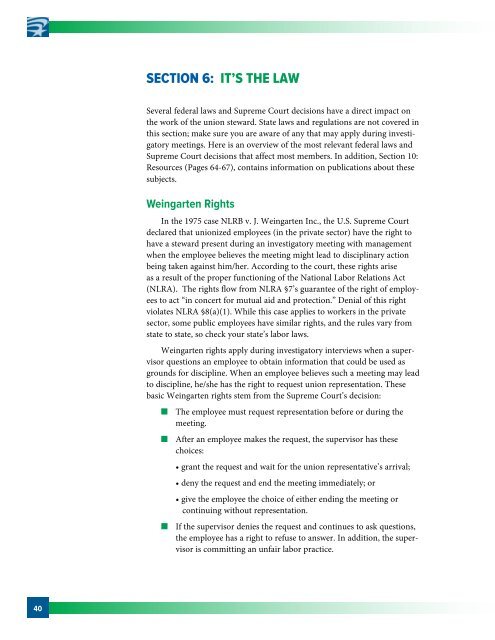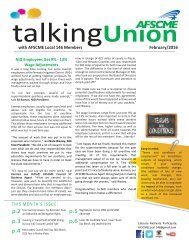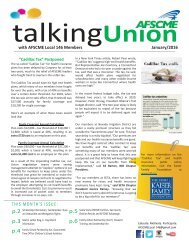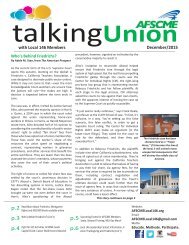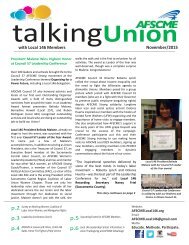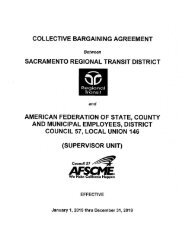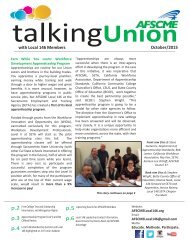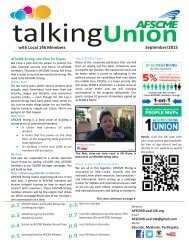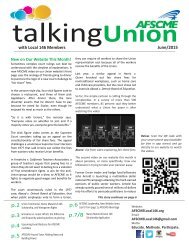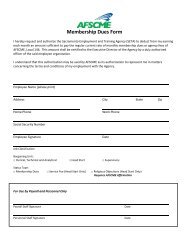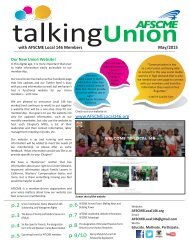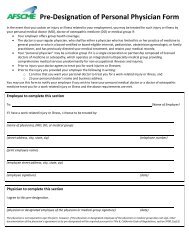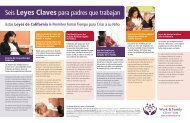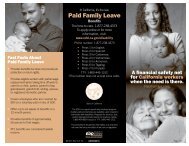STEWARD HANDBOOK
Create successful ePaper yourself
Turn your PDF publications into a flip-book with our unique Google optimized e-Paper software.
SECTION 6: IT’S THE LAW<br />
Several federal laws and Supreme Court decisions have a direct impact on<br />
the work of the union steward. State laws and regulations are not covered in<br />
this section; make sure you are aware of any that may apply during investigatory<br />
meetings. Here is an overview of the most relevant federal laws and<br />
Supreme Court decisions that affect most members. In addition, Section 10:<br />
Resources (Pages 64-67), contains information on publications about these<br />
subjects.<br />
Weingarten Rights<br />
In the 1975 case NLRB v. J. Weingarten Inc., the U.S. Supreme Court<br />
declared that unionized employees (in the private sector) have the right to<br />
have a steward present during an investigatory meeting with management<br />
when the employee believes the meeting might lead to disciplinary action<br />
being taken against him/her. According to the court, these rights arise<br />
as a result of the proper functioning of the National Labor Relations Act<br />
(NLRA). The rights flow from NLRA §7’s guarantee of the right of employees<br />
to act “in concert for mutual aid and protection.” Denial of this right<br />
violates NLRA §8(a)(1). While this case applies to workers in the private<br />
sector, some public employees have similar rights, and the rules vary from<br />
state to state, so check your state’s labor laws.<br />
Weingarten rights apply during investigatory interviews when a supervisor<br />
questions an employee to obtain information that could be used as<br />
grounds for discipline. When an employee believes such a meeting may lead<br />
to discipline, he/she has the right to request union representation. These<br />
basic Weingarten rights stem from the Supreme Court’s decision:<br />
n<br />
n<br />
<br />
n<br />
The employee must request representation before or during the<br />
meeting.<br />
After an employee makes the request, the supervisor has these<br />
choices:<br />
• grant the request and wait for the union representative’s arrival;<br />
• deny the request and end the meeting immediately; or<br />
• give the employee the choice of either ending the meeting or<br />
continuing without representation.<br />
If the supervisor denies the request and continues to ask questions,<br />
the employee has a right to refuse to answer. In addition, the supervisor<br />
is committing an unfair labor practice.<br />
40


